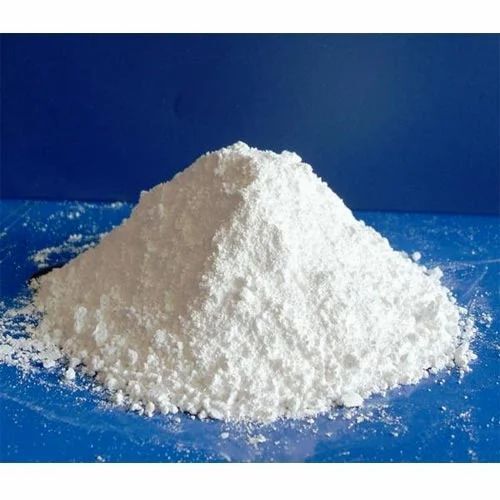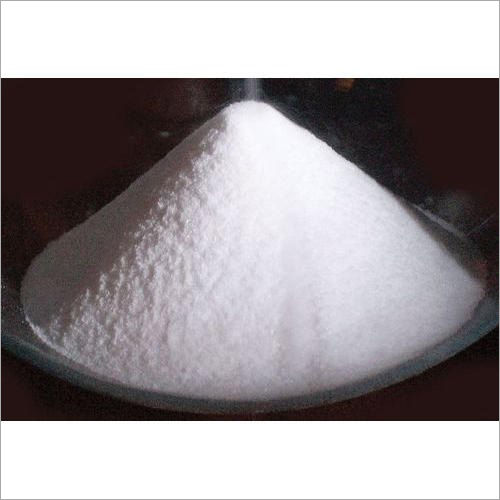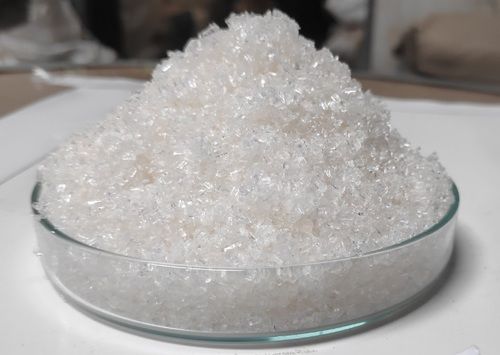Barium Sulphate
1000 INR/Kilograms
Product Details:
X
Barium Sulphate Price And Quantity
- 20000 Kilograms
- 1000 INR/Kilograms
Barium Sulphate Trade Information
- 10000 Kilograms Per Day
- 1 Days
Product Description
Barium sulfate (BaSO4) is a white crystalline solid that is odorless and insoluble in water. It occurs as the mineral barite, which is the main commercial source of barium and materials prepared from it. It is often used in various applications due to its high density, chemical inertness, and relative transparency to X-rays.
Here are some common uses of barium sulfate:
1. Medical Imaging: Barium sulfate is widely used in medical imaging procedures such as X-rays and CT scans. When ingested or administered as a suspension, it provides a contrast medium for imaging the digestive tract.
2. Oil and Gas Exploration: In the oil and gas industry, barium sulfate is used as a weighting agent in drilling fluids. It helps control formation pressures and prevent blowouts during drilling operations.
3. Paints and Coatings: Barium sulfate is used as a pigment extender in paints and coatings due to its high refractive index and chemical inertness. It improves the brightness, opacity, and durability of coatings.
4. Plastics and Rubber: It is used as a filler in plastics and rubber products to enhance properties such as stiffness, dimensional stability, and abrasion resistance.
5. Paper and Textiles: Barium sulfate is used as a filler in paper and textiles to improve smoothness, opacity, and printability.
6. Chemical Industry: It is used as a component in the manufacturing of various chemicals, including barium chemicals, pigments, and catalysts.
7. Radiation Shielding: Due to its high density and X-ray transparency, barium sulfate is used as a component in radiation shielding materials, particularly in medical facilities and nuclear power plants.
8. Ceramics: In the ceramics industry, barium sulfate is used as a flux to improve the brightness and opacity of glazes and as a component in ceramic bodies.
Barium Sulphate Properties:
1. Appearance: Barium sulfate is a white crystalline solid with a fine powder texture. It is typically odorless and tasteless.
2. Density: It has a high density, with a value of around 4.5 grams per cubic centimeter (g/cm3). This high density makes it useful as a weighting agent in various applications, such as drilling fluids in the oil and gas industry.
3. Solubility: Barium sulfate is virtually insoluble in water and most organic solvents. This insolubility is a crucial property that makes it suitable for applications where it needs to remain suspended or dispersed without dissolving, such as in medical imaging contrast agents.
4. Chemical Inertness: It is chemically inert under normal conditions, meaning it does not react with most chemicals. This property makes it useful in applications where stability and non-reactivity are required, such as in paints, coatings, and plastics.
5. Opacity: Barium sulfate has high opacity, meaning it can block or reflect light effectively. This property makes it valuable as a pigment extender in paints, coatings, paper, and textiles, where opacity and brightness are desired.
6. X-ray Transparency: While barium sulfate is opaque to visible light, it is transparent to X-rays. This property is exploited in medical imaging procedures, where barium sulfate suspensions are ingested or administered to provide contrast in X-ray and CT scans of the digestive tract.
7. Thermal Stability: Barium sulfate exhibits good thermal stability, maintaining its properties at high temperatures. This property is important in applications such as ceramics, where it is used as a flux in glazes.
8. Toxicity: While barium sulfate itself is generally considered non-toxic, it can pose a hazard if ingested in large quantities. However, in its intended applications and when handled properly, it is considered safe.
Barium Sulphate FAQ:
Q. What is Barium Sulfate?
Ans: Barium sulfate (BaSO4) is a white crystalline compound that is odorless and insoluble in water. It occurs naturally as the mineral barite and is commonly used in various industrial applications.
Q. What are the main uses of Barium Sulfate?
Ans: Barium sulfate is widely used as a contrast medium in medical imaging procedures, such as X-rays and CT scans. It is also used in the oil and gas industry as a weighting agent in drilling fluids, in paints and coatings as a pigment extender, and in various other applications such as plastics, ceramics, and textiles.
Q. Is Barium Sulfate Toxic?
Ans: Barium sulfate itself is generally considered non-toxic. However, ingestion of large amounts can be harmful. It is important to handle and dispose of it properly according to safety guidelines.
Q. How is Barium Sulfate Administered in Medical Imaging?
Ans: In medical imaging, barium sulfate is typically administered orally or rectally as a suspension. This allows it to coat the walls of the digestive tract, providing contrast for X-rays and CT scans.
Q. What are the Safety Precautions for Handling Barium Sulfate?
Ans: When handling barium sulfate, it is important to wear appropriate personal protective equipment, such as gloves and goggles, to avoid skin contact and inhalation of dust particles. Spills should be cleaned up promptly, and disposal should be done according to local regulations.
Q. Can Barium Sulfate be Used in Food and Beverages?
Ans: Barium sulfate is sometimes used in food and beverage products as a white pigment and as an additive for suspension. However, its use in food and beverages is regulated by authorities due to its potential toxicity.
Q. What are the Environmental Impacts of Barium Sulfate?
Ans: Barium sulfate is generally considered environmentally inert. However, like any chemical substance, it should be handled and disposed of responsibly to minimize potential impacts on the environment.
Tell us about your requirement

Price:
Quantity
Select Unit
- 50
- 100
- 200
- 250
- 500
- 1000+
Additional detail
Mobile number
Email







 Send Inquiry
Send Inquiry Send SMS
Send SMS
